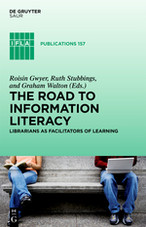 |
| © IFLA |
"The Road to Information Literacy: Librarians as Facilitators of Learning" was the title of a pre-conference satellite meeting run by IFLA's Continuing Professional Development & Workplace Learning (CPDWL) and Information Literacy (IL) Sections. Tampere University hosted this conference from 8th-10th August.
Satellite meetings provide information professionals and LIS researchers with the opportunity to immerse themselves deeper into specific areas of interest in ways the main IFLA conference cannot. They tend to be smaller, so networking with colleagues is much easier. You get to talk to almost everybody. Also, a lot of the attendees and presenters are leading experts in their respective fields, which makes the debates and research discussed a bit more focused. IFLA's sections often co-operate and these joint meetings are a prime example of that.
The following is a personal reflection on some of the things I learned and that I would like to share.
Day one started off with the Elizabeth Stone Memorial Lecture delivered by Professor of Educational Psychology, Kirsti Lonka. This series of lectures has become a fixed part of CPDWL satellite conferences, since Stone was the "godmother" of continuing education and workplace learning in the information professions. Kirsti outlined modern ideas about learning, how it is now being seen as an active, constructive process. She explained the importance of "flow" to the learner, the optimal motivational experience, which had been triggered by an interest. Her message was that "collectively cultivated knowledge practices have their impact on the nature of learning", where digitial natives are not only multitasking, but also outsourcing many cognitive functions to different technological tools. There is also a real move towards "collaborative knowledge construction". This became somewhat the inofficial theme of the conference with many papers emphasising the importance of collaboration with regard to knowledge creation.
Lisa Janicke Hinchliffe, who has served as Vice-President/President-Elect at the Association of College and Research Libraries (ACRL) in the United States, reported on an nationwide professional development initiative for information professionals. Organised by a group of librarians who lobbied their professional organisation, the "Immersion institute" features four speciality programmes: one on the development of the information professional as teacher, one on leadership, one on assessment (which is probably more of interest to academic librarians) and one on reflective practice. All of these are quite practical, and are being created and delivered by members of the association, so that real peer-to-peer teaching and collaboration take place. The "teacher track", for example, helps information professionals to investigate different learning styles, something a lot of librarian might not have come across in their daily work.
In the second presentation of this parallel session Eileen Breen of Emerald Publishing (and general manager of ASLIB) investigated emerging trends in the professional literature covering information literacy. She focused on Reference Services Review (RSR) and its main competitors, Communications in Information Literacy and Journal of Information Literacy. For RSR the main themes are, according to a study conducted by Katy Mahraj (published in Reference Services Review, 40 (2), 2012):
- IL in the workplace
- implications for IL instruction
- importance of collaboration
- health information literacy
- composition studies field: different perspectives on how the research process should be taught
 |
| Some of the conference papers are published in this book. |
I personally enjoy the CPDWL conferences most as they tie in with my research interests, but it was great to get a insight into what the IL section is doing. Many presentations showed the existing overlap between the two fields - indeed, it could be argued that they are intrinsically linked!
For photos and further information check out the satellite website. The presentations will be available soon. You might also be interested in the conference proceedings which have been published and include 20 papers.




0 comments:
Post a Comment